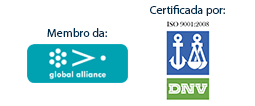Communication is not done with the derriere!
Many Communications and Marketing executives have exchanged their souls, hearts, intelligence and the ability to relate, for their buttocks when defining their communication and brand "strategies".
Despite all the technological development and no matter how many survey companies you use, how competent they are, and how advanced are their methodologies. Despite how geographically far apart are factories, shops, service stations, plants, etc., in which the employees of your company work...
Nothing will ever replace the truth and emotion collected in the exact place where the wealth of organizations and society is being generated and produced. Nothing compares to understanding the noise of the factory, that deafening noise of machines and generators, the heat that comes from the metal roofs, the smell of raw material, the cafeteria at lunch or dinner, the changes of shifts, the night shift, the smell of the employee’s sweat working under the sun...
Nothing, absolutely nothing compares to entering into a claustrophobic tunnel with the worker who risks his life every day to keep the water valve working, or to go to an emergency in the wee hours, under the pouring rain, with the electrician who needs to restoring power. Nothing compares to the steaming pans of the industrial kitchen and to the affection with which the nurses from a nursery take care of the newborns.
Nothing can be as impactful for a communicator as to sweep the sidewalks, filthy due to Brazilians discourtesy, along with a street sweeper that has to take six buses to commute to work every day. To see the affection with which this man performs his job, his awareness of his role and social and environmental contribution. That’s a lesson for any environmentalist. There is no experience as touching as hearing a driver of a third party, working for one of the largest companies in the world, that he felt bad to have lunch in the cafeteria once he couldn’t provide such good meals for his children in his house.
Nothing compares to walking a whole day with a production manager in all the different plants, listening carefully to the reasons why some things go well and others don’t. Listening humbly to the operational manager that the communication you do for the corporation is irrelevant to hundreds of his team members and, then, departing and rethinking everything so you can do it much better.
Nothing, absolutely nothing can be more pleasant than interviewing the companies’ founders! Listen to entrepreneurs who started real empires, and confirm that everything they did had deep human and relational basis. To have the privilege of seeing their eyes shine when remembering the critical and exciting moments of their trajectories.
There is no greater pleasure than to be invited to go to the barbecue in the cleaning assistant's house, meeting his family, earning his respect, and a sincere and emotional hug.
There is no human experience deeper and more painful to carve our humanity than to be invited to "drink the piss" (idiom that means to drink to a child’s birth) of the “peon’s” newborn son, and days later, receive a call from that same worker, during the night, to tell you, in tears, that his offspring had died and that he was confident I would be able to give him some comfort. No fact is more real than going to the hospital on that same morning, and holding the hands of this man and his wife, and in deep pain, praying for God’s protection, feeling absolutely helpless before the ephemerality of existence.
There is no greater sorrow than to see hundreds of people losing their jobs due to problems in the economy or administrative incompetence, what difference does it make? Or going to the location where a colleague was killed in a fatal accident while working. There is nothing more important than participating in the investigation of this accident, finding out its causes so that it never happens and takes the life of someone else again.
No university will ever overcome the experience of sitting with the salesman who is the one looking in the eyes of customers for years and who knows what they think, how they behave and why they buy or not our product or service. No finding is so cruel than seeing this man’s opinion being completely ignored, while the "brilliant strategists" rest in soft chairs in the headquarters with air conditioning, imposing absurd tactics, which contradict all the knowledge of the front line staff, besides burning mercilessly the shareholders money.
The sacred mission versus bureaucratic stupidity
Keeping organizations live, productive and healthy, so the true human wealth continues to producing, progressing, educating, and generating real hope and transformation in people's lives and in the society as whole, is a sacred mission to me. And Communication has so much to add to it! It is not just another mean, another technique; Communication is the only way!
This how I learned to do communication: stepping in the mud of the waste along with the drudge, and debating on equal terms with the president. Looking right in the people’s eyes, with my shoes worn out, with my ears wide open, and my heart embracing either the joy or the deepest pain one can feel. I learned to do communication understanding the other and not forcedly imposing my point of view - so often wrong. I learned to do communication through the eyes of the public. And the only way to do it is by knowing these audiences closely and truly.
This is how we do social and organizational communication. The rest is stupid bureaucracy, destructive vanity, it is the fear to put yourself to the test and end up finding out your competence is not absolute, it is not relying on you to recreate yourself in the light of the experienced reality. Anything other than this is mechanistic, poor, value destructive, and, therefore, it is not Communication.
More often than not, I took communications and marketing managers by their hands so they could meet their public... the executives responsible for internal corporate communication who had never left the comfortable corporation buildings, who had never deigned themselves to wear a uniform. Communication kits coming from corporations in the US, Europe, etc. and that were simply translated and distributed without the slightest concern or respect to the people working for those companies. Marketing managers, who had never talked to any customer, trusting blindly “in surveys." How could they understand such surveys if the most important is precisely what they do not say? This is a knowledge that is only achieved by getting the butt out of the chair.
In such companies, the politically correct word "collaborator" actually means: people who work for us and should do whatever our egos dictate.
Such cases happened over and over again during these thirty years I’ve been on the road. It is not uncommon to contract a consulting to "visit the areas," "know the shop floor ", and to know what actually happens because executives "do not have time" to meet people.
The soul of the business is being ignored...
Looking in people's eyes and talking to them, learning in a simple and profound way what are the most appropriate media and channels to communicate is what enabled me, dozens of times, to anticipate the results of surveys conducted by renowned institutions; I’m not downplaying them, quite on the contrary. Thanks to the "scientific confirmation” of what I had detected, I gained respect and notoriety and started to be heard by presidents and business leaders.
So many times, I brought the harsh reality about what happens in the front line with the customer to the table. And how often, on such occasions, senior executives, including presidents, were dumbfounded to see that what they had to do was much simpler and cheaper than the fancy plans they were about to approve .
So many times Communication and Marketing peers are at the mercy of advertising agencies rather than managing them, simply because they lack depth information to do so.
My life as a specialist, executive, consultant and teacher taught me many things. One of the most important is that all technical, academic, theoretical etc. knowledge becomes really useful when you can use it in the light of objective and effective realities. 90% of companies, according to Kaplan and Norton teachers, fail not in strategy development, but in its practical application.
Professor Peter Drucker, one of the gurus who have always inspired me to do my job, made it clear throughout his extensive and profound work that human knowledge applied to work was the great development engine of the industrial period, starting from Taylor. The possibility of considering human experience in production, working, and innovation had enabled us to have the extraordinary growth of the economies and the consolidation of human well-being in the most developed societies.
Today, the combination of knowledge is, at the same time, the most valuable resource and also the most wasted by organizations. Either because of the vanity of some executives, fragility, lack of preparation and lethargy of many professionals, or because of grotesque management failures, some results may be considered mediocre if compared to what could have been achieved if people were truly involved in the process to generate value. And by the way: what about the HR, where is it anyway? What does it work for?
Please, not with the hindquarters!
In "The revolution of the people ," an article I published in 2013 I wrote that "today, the network flow, greatly eased by the communication technologies and mobility, allows different expertise to be combined immediately, even within great geographical distances, and creates new possibilities and scales. However, we are just crawling in the Knowledge Era which is actually the Age of People."
I believe that technology should serve the purpose of integrating and including people in many different organizations, opening up possibilities for them to share their knowledge, feelings and experiences in a valuable way for the capital and for society as a whole. Many organizations sponsor "actions of social inclusion," but they are the first ones to exclude their employees and customers of the process of creating the social value they are intending to deliver. It is a huge nonsense.
To put it shortly, Communication, Marketing, Branding ... none of these can be done by sitting down on a chair and pretending to have any kind of superior and privileged intelligence.
The best indicators for a good communicator are: how much his shoes are worn everyday, how much he could learn from his experiences and his ability to understand, demonstrate, persuade and implement something truly changing. Intelligently, strategically, and exquisitely simple.
Anything other than this is worth as much as toilet paper.
Os artigos aqui apresentados n�o necessariamente refletem a opini�o da Aberje
e seu conte�do � de exclusiva responsabilidade do autor. 1093
Outras colunas de Renato Manzano
21/12/2015 - A Ressignificação da Comunicação Organizacional: um Manifesto Sistêmico
13/07/2015 - Communication is not done with the derriere!
10/07/2015 - Não se faz Comunicação com o traseiro!
02/06/2015 - Reduce costs without diminishing value
28/05/2015 - Reduza custos sem destruir valor












